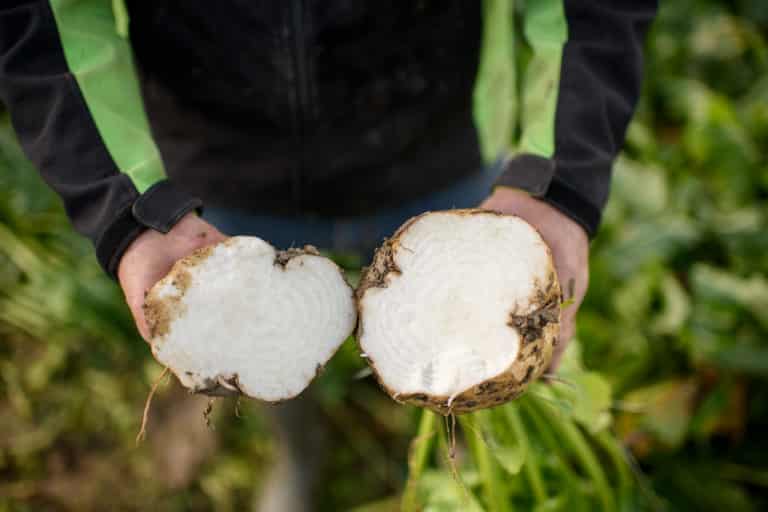Plastic from sugar beet
Almost everything around us contains carbon. Plastic drinking bottles, make-up, your stainless steel bicycle: they all contain carbon. What about people? They are eighteen per cent carbon. So it’s a versatile and vital substance, but one with a drawback: when carbon burns, CO2 is released. And CO2 is a greenhouse gas that is causing climate change. Fossil fuels such as petroleum are an important source of carbon and many plastics are made from this. Important disadvantages of fossil-based carbon sources: they are scarce and incinerating fossil carbon produces extra CO2.
Good alternatives
There are good alternatives. Such as carbon from biomass, for example from sugar beet. Or recovering carbon from CO2 or recycling products. All these alternatives are being investigated by the Renewable Carbon Initiative (RCI). This is an initiative of eleven large companies from six countries as well as the German nova-Institute; a renowned research and advice agency that specializes in renewable carbon. The RCI currently has thirty members and six partners, including the WWF. Cosun Beet Company is one of the initiators. Marilia Foukaraki, Biobased Project Leader at Cosun Beet Company, is closely involved in this. ‘Cooperating in the RCI helps us better understand new markets. We share knowledge with other initiators and can learn from each other.’
RCI aims for all fossil carbon in chemicals and materials to be replaced by renewable, climate-neutral carbon by 2050. Marilia: ‘The transition to biobased and circular carbon is just as important as replacing fossil fuels with renewable energy. RCI helps spread that insight in the European Union.’
Carbon from sugar beet
‘Cosun Beet Company is one of the RCI initiators as it aims to be a frontrunner in the biobased economy. We want to obtain more from sugar beet than only sugar. We are entirely convinced that plant-based and circular is the future. RCI’s research and activities help us better understand new markets. We share knowledge with other initiators and can learn from each other. We aim to deliver additional input for a biobased Europe and contribute to solutions for climate problems. Biobased paint, packaging, or cosmetics? All possible with climate-neutral carbon from sugar beet. Perhaps your smoothie will soon be in a bottle made from sugar beets?’


